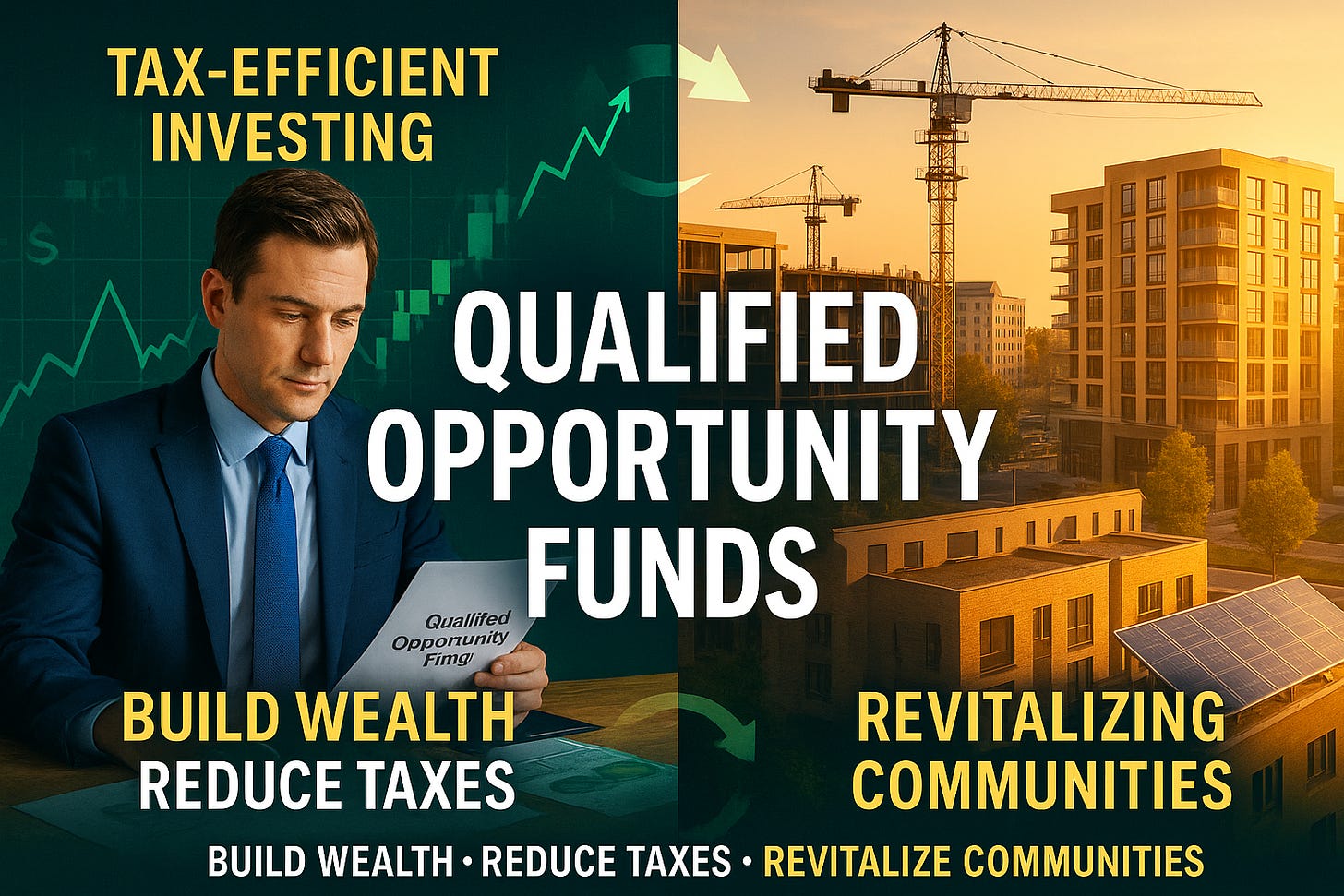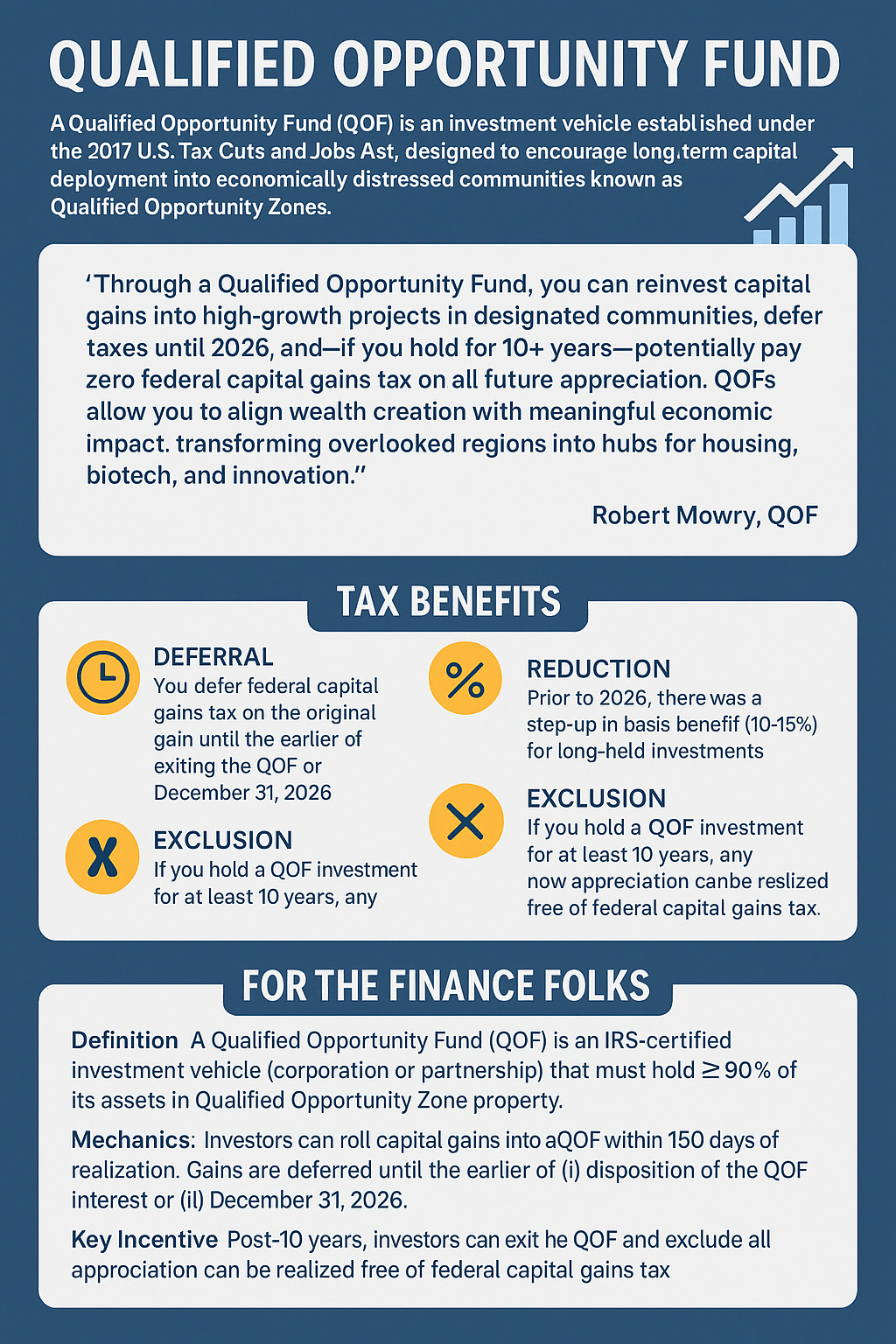Build Wealth, Reduce Taxes, Revitalize Communities
A Qualified Opportunity Fund (QOF) is an investment vehicle established under the 2017 U.S. Tax Cuts and Jobs Act, designed to encourage long-term capital deployment into economically distressed communities known as Qualified Opportunity Zones.
"Through a Qualified Opportunity Fund, you can reinvest capital gains into high-growth projects in designated communities, defer taxes until 2026, and—if you hold for 10+ years—potentially pay zero federal capital gains tax on all future appreciation. QOFs allow you to align wealth creation with meaningful economic impact, transforming overlooked regions into hubs for housing, biotech, and innovation." - Robert Mowry, Partner at QOF.
At its core, a QOF is a corporation or partnership that self-certifies with the IRS (via Form 8996) and directs capital into eligible assets within these zones—typically operating businesses, real estate developments, or infrastructure projects. The fund must maintain at least 90% of its assets in Qualified Opportunity Zone property to preserve its status.
From an investor’s standpoint, the attraction isn’t just social impact—it’s tax efficiency. If you reinvest a capital gain into a QOF within 180 days of realizing that gain:
Deferral – You defer federal capital gains tax on the original gain until the earlier of exiting the QOF or December 31, 2026.
Reduction – Prior to 2026, there was a step-up in basis benefit (10–15%) for long-held investments, but that window has effectively closed.
Exclusion – The most powerful incentive: if you hold your QOF investment for at least 10 years, any appreciation in the new investment (not the deferred gain) can be realized entirely free of federal capital gains tax.
In practice, QOFs have been used for everything from redeveloping workforce housing in urban centers to funding biotech labs, logistics hubs, and renewable energy projects in designated zones. But due diligence is critical—both at the fund level (compliance with the 90% test, governance, liquidity) and at the project level (real economic viability vs. simply chasing tax shelter).
For the finance folks in the group:
Definition: A Qualified Opportunity Fund (QOF) is an IRS-certified investment vehicle (corporation or partnership) that must hold ≥90% of its assets in Qualified Opportunity Zone property.
Mechanics: Investors can roll capital gains into a QOF within 180 days of realization. Gains are deferred until the earlier of (i) disposition of the QOF interest or (ii) December 31, 2026.
Key Incentive: Post-10 years, investors can exit the QOF and exclude all appreciation on the QOF investment from federal capital gains taxation.
Use Cases: Real estate redevelopment, operating businesses, infrastructure projects.
In short: A QOF is a government-sanctioned mechanism that allows investors to recycle gains into underserved communities with the dual objectives of economic development and highly favorable tax treatment—essentially marrying impact investing with tax-advantaged portfolio management.


